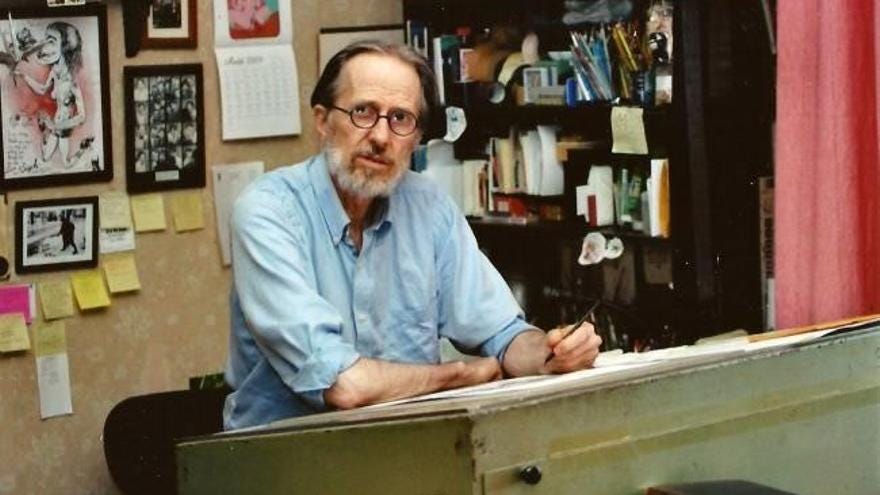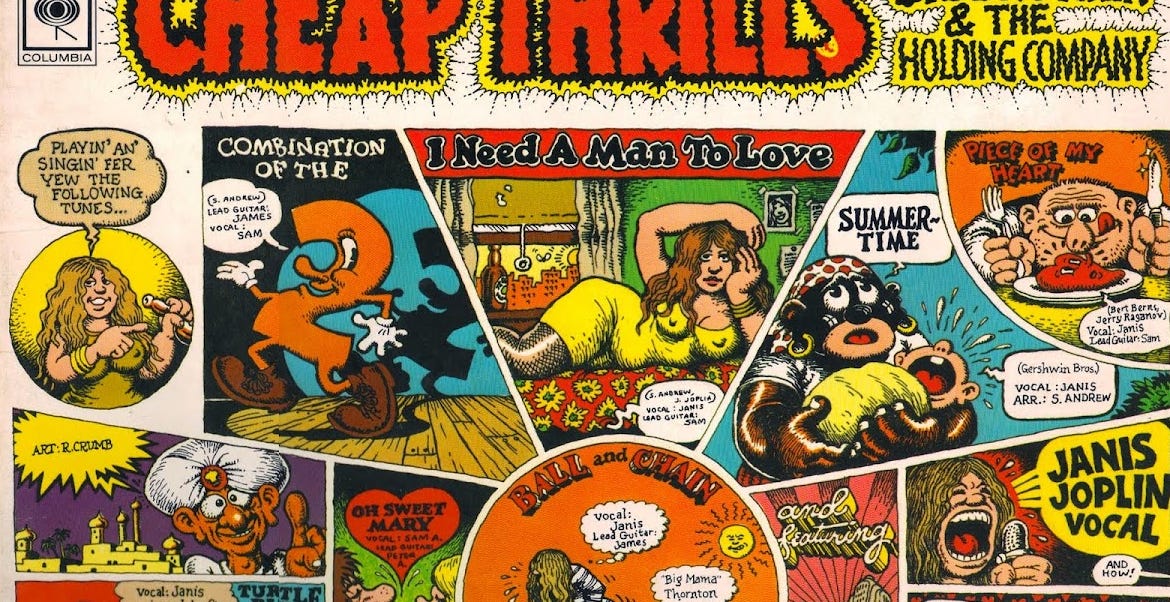Robert Crumb
Robert Crumb, commonly known as R. Crumb, is a renowned American underground cartoonist and illustrator known for his distinctive and provocative work.
Born on August 30, 1943, in Philadelphia, Pennsylvania, Crumb has had a profound influence on the world of alternative comics and counterculture art. His career spans several decades and encompasses a wide range of artistic styles and themes.
Early Life:
Robert Dennis Crumb grew up in a dysfunctional family in Philadelphia. His father, Charles V. Crumb, was an authoritarian figure, and his mother, Beatrice, struggled with mental health issues. This challenging family environment had a lasting impact on Crumb's art, as many of his later works would explore themes of sexuality, neurosis, and societal norms.
The Underground Comix Movement:
In the late 1960s and early 1970s, Crumb emerged as one of the leading figures of the underground comix movement. Alongside artists like Gilbert Shelton, S. Clay Wilson, and Spain Rodriguez, he contributed to a new wave of comics that challenged conventional norms and embraced countercultural themes. His work often featured explicit content, satire, and social commentary.
Crumb's most iconic creation during this period was "Fritz the Cat," a rebellious, anthropomorphic cat that became a symbol of the counterculture. "Fritz the Cat" was later adapted into an animated film in 1972, directed by Ralph Bakshi.
Zap Comix and Collaboration:
Crumb was a key contributor to the underground comic book "Zap Comix," which premiered in 1967. This series introduced readers to his signature characters, such as Mr. Natural and the Keep on Truckin' guys. Crumb's intricate, cross-hatched style and his exploration of taboo subjects set him apart from mainstream comics.
Crumb's collaborations with other underground artists were also significant. He frequently contributed to publications like "The East Village Other" and "Yellow Dog." His work was highly sought after, and he gained a reputation as an influential and controversial artist.
Criticism and Controversy:
While Crumb's work was celebrated by many for its subversive humor and fearless exploration of human behavior, it also drew criticism for its explicit sexual content and depictions of women. Some accused him of misogyny and promoting harmful stereotypes. Crumb himself has acknowledged these critiques and has expressed regret for some of his earlier work.
Later Career:
In the 1980s and 1990s, Crumb's work began to evolve. He explored more autobiographical themes in works like "My Troubles with Women" and "The Book of Genesis Illustrated." He also contributed to publications like "The New Yorker" and "Wired."
Crumb's influence extended beyond comics into other artistic realms. He was an accomplished musician and played in various bands, including The Cheap Suit Serenaders. He also created album covers for artists like Big Brother and the Holding Company.
Legacy:
R. Crumb is widely regarded as one of the most significant and influential figures in the history of alternative comics. His willingness to push boundaries and tackle taboo subjects paved the way for future generations of underground and alternative cartoonists. Despite controversy and criticism, his work continues to be celebrated for its boldness and its impact on the art world.
Crumb's influence can be seen in the work of contemporary artists, and his comics remain in print, captivating new generations of readers. His ability to challenge societal norms and explore the complexities of the human psyche through his art has solidified his place in the pantheon of American counterculture icons.




